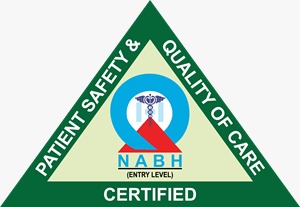About the Department
Biochemistry
The Department of Biochemistry has the distinction of being the first full fledged Department engaged in quality biochemical research and teaching in North India since the time when AIIMS had not come into existence and the Medical Colleges did not have separate Biochemistry Department.
The Department at the start was headed by Dr. Ranganatha Rao, a medical graduate who had training in biochemical research in USA. After some years he left VPCI and the position was taken over by Dr TAV Subramanian who had worked with renowned scientists like Dr CG King and Dr Jim Price at College of Physicians and Surgeons, Columbia University and University of Wisconsin Medical School, Dept. of Clinical Oncology. Dr TAV Subramanian was HOD Biochemistry and was largely responsible for shaping the Department into a reputed Centre by introducing MD, MSc and PhD in Medical Biochemistry. He was assisted by highly trained colleagues, Drs D Subramanyam, Bhattatiry, Sharada Subramanian, UK Misra, VN Singh, L Viswanthan, PS Murthy and many others who were either permanent or project scientists. Dr VN Singh left VPCI in 1972 and then Dr HG Raj joined. Later in July 1989, Dr SK Bansal joined the Department.
Prof TAV Subramanian had the distinction of being the first non-medical graduate to become the Dean of Faculty of Medical Sciences of University of Delhi. After the superannuation of Prof TAV Subramanian, Prof UK Misra took over as HOD Biochemistry and held the position till December 1990. Subsequently, Dr HG Raj became HOD in January 1991 and continued till March 2011. Since April 2011, the Department is headed by Prof SK Bansal.
Prof TAV Subramanian initiated research work in experimental tuberculosis, biochemistry of Mycobacterium tuberculosis, vitamin A, radiation biochemistry, nutritional biochemistry and biological aspects of aflatoxin. Prof UK Misra initiated work on various aspects of pesticide toxicity, effects of coal fly ash, vitamin A research, nutritional biochemistry, signal transduction etc in lungs and other tissues. Prof HG Raj continued the research work on aflatoxin and later switched over to research on protein modification by trans-acetylation, and drug development. He discovered the transacetylase activity of calreticulin. Prof SK Bansal started his career by conducting the research in asthma and COPD by exploring the mechanism of signal transduction and continued his work on related areas viz. cytokine biology, membrane lipid rafts, pharmacogenomics etc. and also on molecular genetics of adrenoleukodystrophy.
Since its inception, the main activities of the Department had been (i) routine and biochemical investigations on patients referred from Clinical Research Centre (till 1972), (ii) post-graduate teaching (D.T.C.D., D.R.M., M.D. (Chest diseases), M.D. (Biochemistry), M.Sc. (Medical Biochemistry) and (iii) research training of post-graduate students and scientists of other research institutions in various specialized biochemical techniques from all over India. The Department also had a unit through Ministry of health and Family Welfare for the analysis of mycotoxins in food materials, analysis of lipids from biological sources and the research techniques. The Department had collaborative research projects with various Departments of Delhi University.
The Department till date had produced over 200 Ph.D. and a large number of M.D. graduates. Many old students of the Department are doing excellent research and occupied high academic positions in India and abroad.
Major areas of research
Past research activities
1. Metabolic studies on mycobacteria
2. Functions and regulation of polyamines in mycobacteria
3. Molecular biology of tubercle bacilli
4. Studies on aflatoxin
5. Seasonal variation of metal in coal fly ash
6. Cytotoxicity of intratracheally administered coal fly ash.
7. Biochemical and pathological effects of fly ash on lung, liver and blood of rats
8. Nutrition and metabolism
9. Membrane dynamics, hormone secretion and protein nutrition
10. Hepatic plasma membrane chemistry and function in relation to protein nutrition
11. Transmembrane signalling, protein kinase C and protein nutrition
12. Role of endothelin in bronchial asthma. A study on membrane phospholipid turnover and protein kinase C
13. Effect of vitamin A deficiency on signal transduction
14. Transmembrane signalling in bronchial asthma
15. Signal transduction mechanism during expression and release of proinflammatory cytokines in bronchial asthma
Recent/Current research activities
1. Polyphenolic acetates and transacetylase activity in various organisms
2. Role of lipids of lipid rafts in bronchial asthma and COPD
3. Biochemical, physiological and histopathological changes at the onset of airway hyperreactivity in guinea pigs with respect to signaling mechanism.
4. Molecular genetics of adrenoleukodystrophy
5. Pharmacogenomics of bronchial asthma.












.png)
.png)


